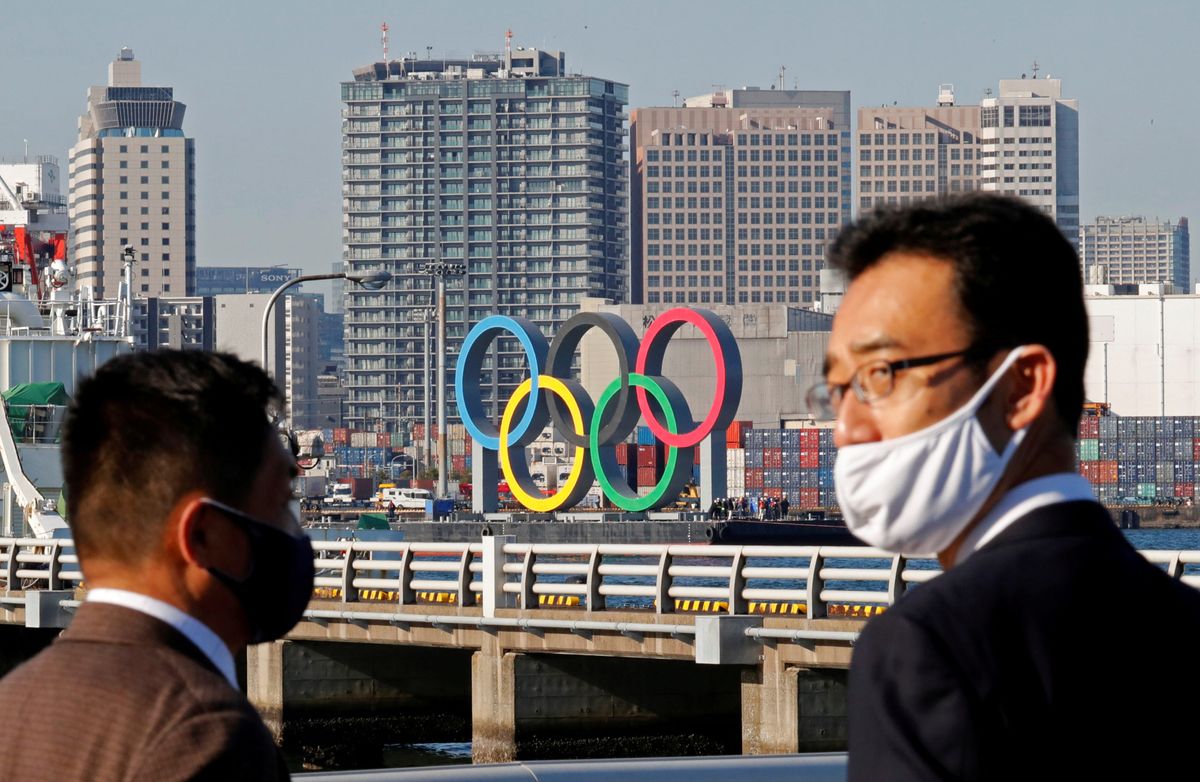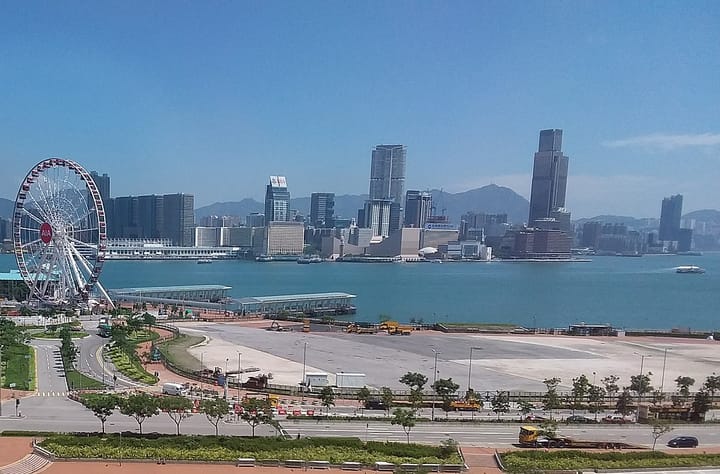How is Japan working to host a COVID-free Olympics this summer?

A few minutes every morning is all you need.
Stay up to date on the world's Headlines and Human Stories. It's fun, it's factual, it's fluff-free.
As the organizers of this year’s Olympics work to assure the public that they are taking all necessary precautions, the realities of the ongoing pandemic may undercut their efforts.
Almost exactly three months before the start of the Summer Olympics in Tokyo, Japan, a police officer who was working as part of the Olympic torch relay staff was diagnosed with COVID-19. It is only one case, so far, but it’s emblematic of the struggles Japan and the International Olympic Committee (IOC) will face in hosting the Olympic Games while a pandemic continues to rage.
The Summer Olympics were supposed to be held in 2020, but in late March of that year, as COVID-19 rapidly spread around the world, the IOC and Japan decided to postpone the games for a year. It was an unprecedented move – the Olympics have only ever previously been canceled because of war – but one that reflected just how serious the pandemic would become.
When the games were initially postponed to 2021, at a time when there were fewer than 500,000 confirmed cases worldwide, it seemed feasible that the virus would have run its course within a year. But now, less than three months out from the official opening of this year’s Olympics, countries including Japan and India are seeing a rise in case numbers.
The one major difference between 2020 and 2021 is that there are now multiple COVID-19 vaccines available. However, as a nation, Japan currently has the slowest vaccination rate among nations in the Group of Seven (G-7), with only 1% of its population having received even one vaccine shot.
As the organizers of this year’s Olympics (still officially known as the Tokyo 2020 Olympic Games) work to assure the public that they are taking all necessary precautions, the realities of the ongoing pandemic may undercut their efforts. There are many who believe the games should be canceled yet again. For now, though, they appear to be going ahead as scheduled.
COVID-19 precautions for the 2021 Olympics
In February 2021, the IOC released its “playbook” for the Tokyo 2020 Olympics, outlining the procedures and policies for the games, which will last from July 23 to August 8. This playbook provides the thousands of participants, journalists and officials who will be in attendance a guide for how to navigate an Olympic Games overshadowed by COVID-19.
The rules in the playbook cover travel, social activities, hygiene and guidelines on testing and vaccination. These guidelines also cover the Tokyo 2020 Paralympic Games that will be held from August 24 to September 5.
Those involved in the games, either as athletes, coaches or in any other role, are expected to follow the COVID-19 guidelines starting 14 days before they arrive in Japan. Everyone arriving in the country must prove they have tested negative for the coronavirus within 72 hours of arrival. They must also download Japan’s COVID-tracking app, COCOA (Contact-Confirming Application).
The IOC is not requiring that participants be vaccinated, though they are encouraging people to do so if it is at all possible.
The playbook recommends “keep[ing] physical interactions with others to a minimum” and avoiding enclosed spaces and crowds. Participants in the games will be tested for the virus throughout their stay. They will also be required to wear masks when not participating in an event and spectators are asked to clap in support of the athletes, but not sing or chant.
As for spectators, those will be limited to only direct participants in the games and locals to Japan. In March, the IOC announced that it would be barring all overseas spectators from attending the games. Those who already had tickets to the games are being given full refunds.
A second version of the playbook, with updated information, will be released in the coming weeks. The IOC says these updated guidelines will “build on the strong foundations outlined in the first edition, providing greater detail which will allow key stakeholders to continue their preparations for this year’s Games.”
IOC President Thomas Bach has said Tokyo is “the best-prepared Olympic city ever.”
The Olympic torch relay
As Japan currently faces a fourth wave of COVID-19, including a so-called “double mutant” variant, likely from India, there are many in the country who believe the Olympic Games should be canceled. As of now, though, the games are expected to continue.
In 2020, the Olympic festivities had already officially kicked off with the lighting of the Olympic flame when the IOC made the decision to postpone the games. Though there were rumors this last January that the games would be canceled yet again, it appears that Japan and IOC are determined to ensure the show goes on.
The 121-day Olympic torch relay, which involves the Olympic flame being carried from prefecture to prefecture until it reaches the site of the games, began in Fukushima on March 25. The Flame mostly stays in each prefecture for two to three days before it is carried onto the next. The final days of April will see the Flame in transit from Kagoshima to Okinawa.
The Olympic Torch will arrive in Tokyo on July 9 and stay in the city until July 23 when it will light the Olympic Cauldron at the Olympic Stadium, officially the Japan National Stadium.
The police officer who tested positive for COVID-19 was guiding traffic for the relay in Kagawa, a prefecture on the island of Shikoku in the south of Japan. There is no indication that the officer came into contact with any of the relay runners.
Have a tip or story? Get in touch with our reporters at tips@themilsource.com




Comments ()